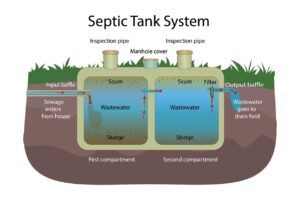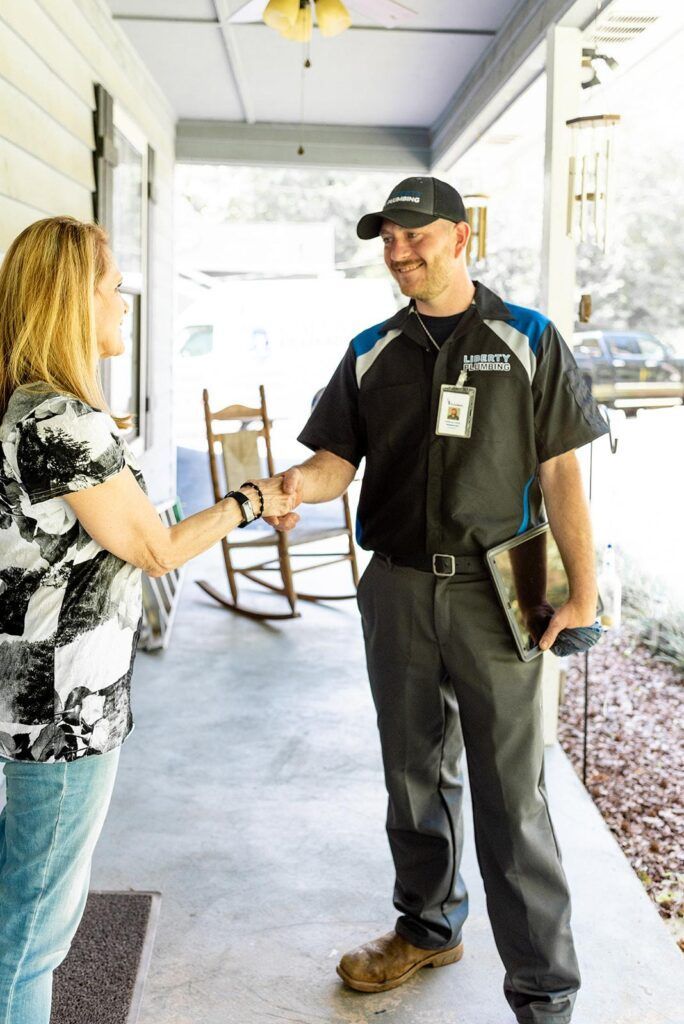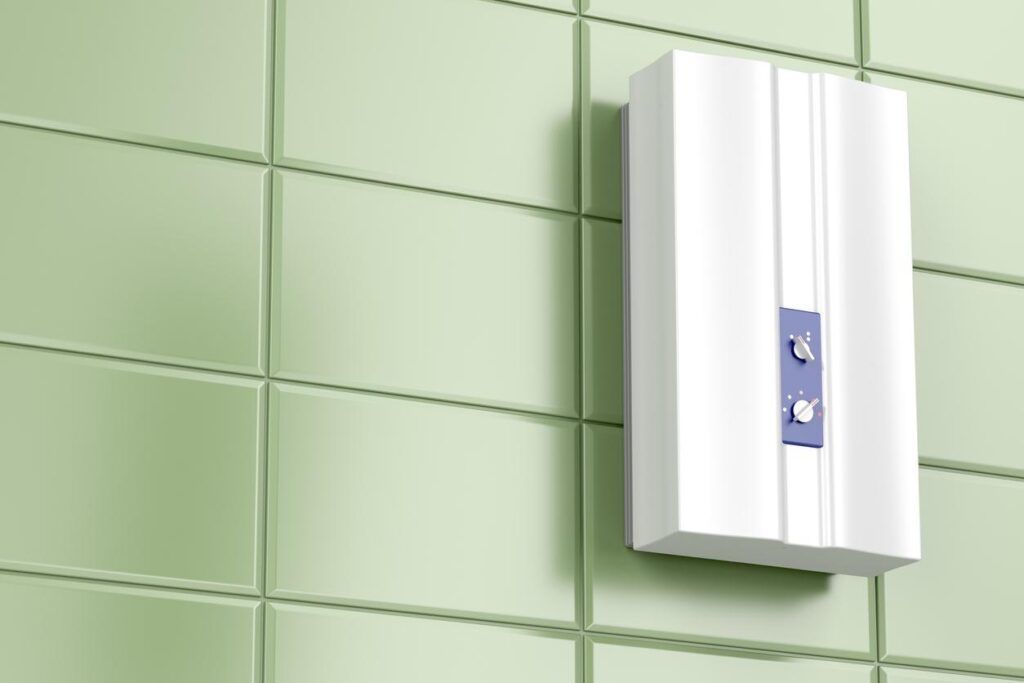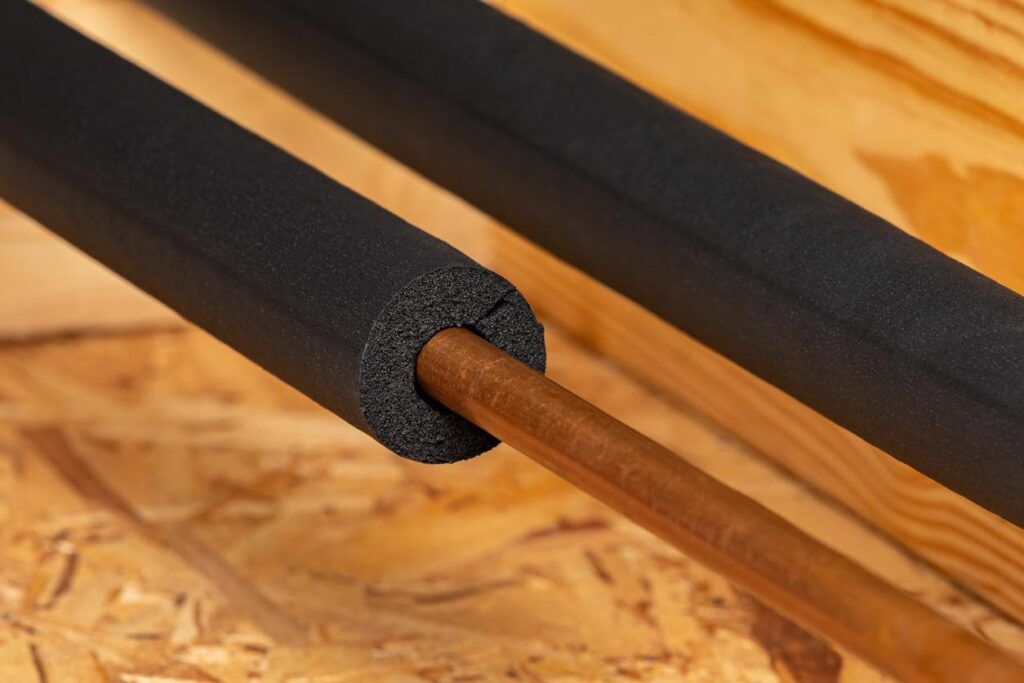Atlanta Septic Tank Service – How Your Septic Tank Works
Expert Septic Tank Service in Atlanta by Liberty Plumbing
In countless homes in the Atlanta area and near Conyers Georgia, household waste is disposed of in a septic tank. Properly maintained, your septic tank should last for decades, and knowing how your septic system works is the first step in proper maintenance.
In this post, we’ill explain how a properly maintained septic tank system should work and provide a few pointers on ways you can keep your system in tip top shape.

Septic Tank Basics 101
In understanding this system that handles your household waste, it’s essential to remember that bacteria make the system work. Their main job is to break down the waste in your system, leaving the water that exits your tank clean enough to safely percolate into the soil around the drain field.
Some of the bacteria that do this crucial work live in the tank, but most live in the drain field outside the tank.
With these basics in mind, here’s how your system runs and works.
- All waste water flows out of your house via a main drainage pipe into your tank.
- The tank is, of course, underground and is usually made of fiberglass, polyethylene, or concrete.
- The job of the tank is to hold the watery waste, known as effluent, long enough for solids to settle to the bottom in the form of sludge, while oil and grease float to the top as scum.
- In the tank, bacteria begin breaking down the organic material in the effluent.
- Effluent gradually flows from the tank into the drain field, and a filter prevents most solids from entering the drain pipe and making their way to the drain field.
- Holes in the drain pipe allow effluent to flow into the gravel and soil around the pipe, and bacteria in the soil and gravel finish the job of decomposing the waste.
- From the drain field, clean water seeps down into the groundwater and aquifer.
Tips on Maintaining Your Septic Tank System
The following should help you keep your septic system in good working order.
- Don’t overload the system – Limiting the amount of water flowing into your system helps prevent untreated waste from flowing into the drain field. One suggestion: Do small loads of laundry throughout the week rather than big loads on the weekend.
- Consider installing a lint filter – This filter goes on the washing machine’s drain and prevents lint and synthetic fibers that bacteria can’t break down from entering your system.
- Limit the use of your kitchen food disposer – We know they’re handy, but disposers don’t break food down into particles small enough to pass through the system’s filter. And that can increase the amount of solids in your tank by as much as 50%.
- Be careful what you flush – Never flush paper towels, disposable diapers, plastics, tobacco, and other non-biodegradable materials as these will clog your system.
Septic Tank Service in Atlanta Area
Depending on the size of your tank, as well as the size of your family and how much waste is run through the system, your septic tank will probably need to be pumped every 2 – 3 years. When it’s time for your system to be pumped out, or when you encounter problems like foul odors and backed up toilets, you need to call the septic tank experts from Liberty Plumbing.
For septic tank services for both homes and businesses in the greater Atlanta area, no one does the better job than the professionals at Liberty Plumbing. When it’s time for septic tank pumping , or at the first sign of septic tank problems, call us or contact us online, and our technicians will be right over to help you.
The post Atlanta Septic Tank Service – How Your Septic Tank Works appeared first on Liberty Plumbing.
You might also like




